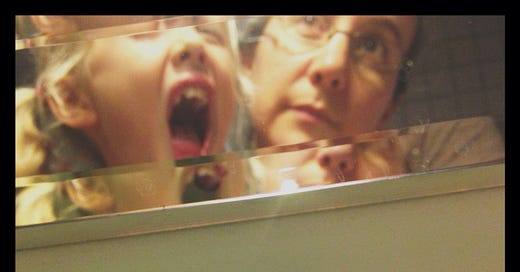I’ve been writing Chapter 5 of my Into Being book (on the transformative craft of memoir - due to be published 2025), and it’s about voice, and how writers of memoir need to step into the narrative – ie, show ourselves, our character, our opinion – and that this can sometimes be difficult. You might also call this the reflective voice, and it involves the tricky business of characterising the self. I am writing this piece here in part to ask my readers - you! - to help me a little, as I am trying to work out quite how difficult it is to see ourselves objectively. So, if you are interested in what I have to say here and have any thoughts on it, I’d love to hear them in the comments.
It is indisputable that every writer of memoir, just like every first-person narrator of fiction, needs to be a distinct character. In fact a memoir lives or dies according to voice. What I mean by character is a distinct voice, and individual and recognisable characteristics, and quirks, things that are particular and specific. Much like all speaking voices are different, all writing voices are different – and the voice is the delivery system of the narrator’s personality, or the persona that she is willing to present to the world. Or, as Vivian Gornick would have it, the persona that is in service to the story being told.
Phillip Lopate writes in his brilliant book on Narrative Nonfiction To Show and To Tell, we should maximise those quirks that are particular to us, ‘those small differences that seem to set us apart from others, and project them theatrically…. In order to turn ourselves into characters, we need to dramatize ourselves.’ He doesn’t mean inventing things that aren’t there, but more putting those quirks under a magnifying glass, ‘the most clearly focused, sharply defined light.’
So how do we discover what these quirks are?




